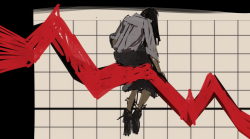As my voice rang out that cold, breezy night in November two years ago, my hands shook and my mind filled with images of a similar evening four years past. The entire time I spoke I felt completely removed from myself? as though I were listening with the crowd of hundreds, not speaking to them. For the first time in my life, I spoke out publicly at Georgetown’s Take Back the Night rally about being raped in high school. Somewhat naively, I had convinced myself that this would be easy?I thought my healing was complete after years of therapy and numerous difficult episodes of telling family and friends what had happened. Yet, as I walked away from that podium and realized what I had done, I felt the full vulnerability of my situation. I lost control?control that I had fought so hard to regain?and sobbed as it finally sank in that I could never fully recover what I had lost. I hadn’t after four years, and I wouldn’t after 25.
No matter how much time passes, the scars on my body and soul will never disappear; they only fade. They will never heal; they simply become more manageable. Yet experiencing Take Back the Night two years ago gave me the closest thing to healing I could ask for. For the first time in my life I learned I wasn’t alone. I learned that even people who had never experienced sexual assault supported me, believed me and fought to help me. I, in turn, found the strength to reach out to others, to share my story, to give a voice to those who have lost theirs. In doing so, I gave others permission to do the same and gave myself permission to forgive a little more. That is what Take Back the Night is all about.
Take Back the Night is a weeklong series of events to promote awareness about violence against women and to support survivors and victims of that violence. It is a week to recognize that many have suffered from gender violence and to physically show support for those suffering. Because Take Back the Night recognizes the intense feelings of anger and hurt that come from sexual, physical and emotional abuse, it focuses around shouting and reclaiming a space where violence has occurred, but it is also a celebration of the strength of survivors and of all women through spoken word, music, videos, demonstrations and speak-outs. Take Back the Night is one week of the year to remember, reflect on and work to recover from the violence that many are consumed by every day of the year.
Every year I learn from Take Back the Night, and every year I am surprised by two facts. The first is the alarming number of people who share their stories for the first time, who finally allow themselves to admit that the person to blame for that night of violence is not themself. I always wish to think that rape and abuse is on the decline, that fewer women are suffering through what I suffered, but the reality is that one in four of us female Georgetown undergraduates will be assaulted during their fours years on this campus.
The second surprise is the ever-present backlash against Take Back the Night. Whether it is in tearing down flyers or misrepresentation in school publications, it never ceases to amaze me that some overlook the inherent value of Take Back the Night, committing slander against it by calling it a week of lesbian recruiting or men bashing.
Take Back the Night was started as a national movement to support women (of all sexual orientations, gender identities, races, classes, etc.) who endured sexual, physical and emotional violence. Recognizing that men also experience violence, Take Back the Night does not exclude men on a lack of need, but rather focuses attention on women because they experience sexual violence in epidemic and often ignored proportions. Georgetown’s Take Back the Night includes all those who have suffered from gender violence and continues to vocally encourage male members, supporters and participants.
I have a really hard time understanding what is so controversial about Take Back the Night’s simple message: Stop violence against women. I wish more Georgetown students would see the power of this movement and support it. But since I know that won’t happen overnight, I will just say that I am so proud to be part of Take Back the Night that I invite you to join, discuss, support us and support yourself. I admit that like you I am scared of facing my past?that night six years ago can still make it hard to get out of bed. But I assure you that hard as it may be, it’s harder to ignore. And to those out there who decide not to support Take Back the Night, know that no matter how many times you rip down our signs or try to shut us up, we will still be here, you will see us. And our strength is growing.
Rachel Bouttenot is a senior in the College and is currently taking seven classes to graduate in May. She would like to give a special shout out to the folks at Take Back the Night.




